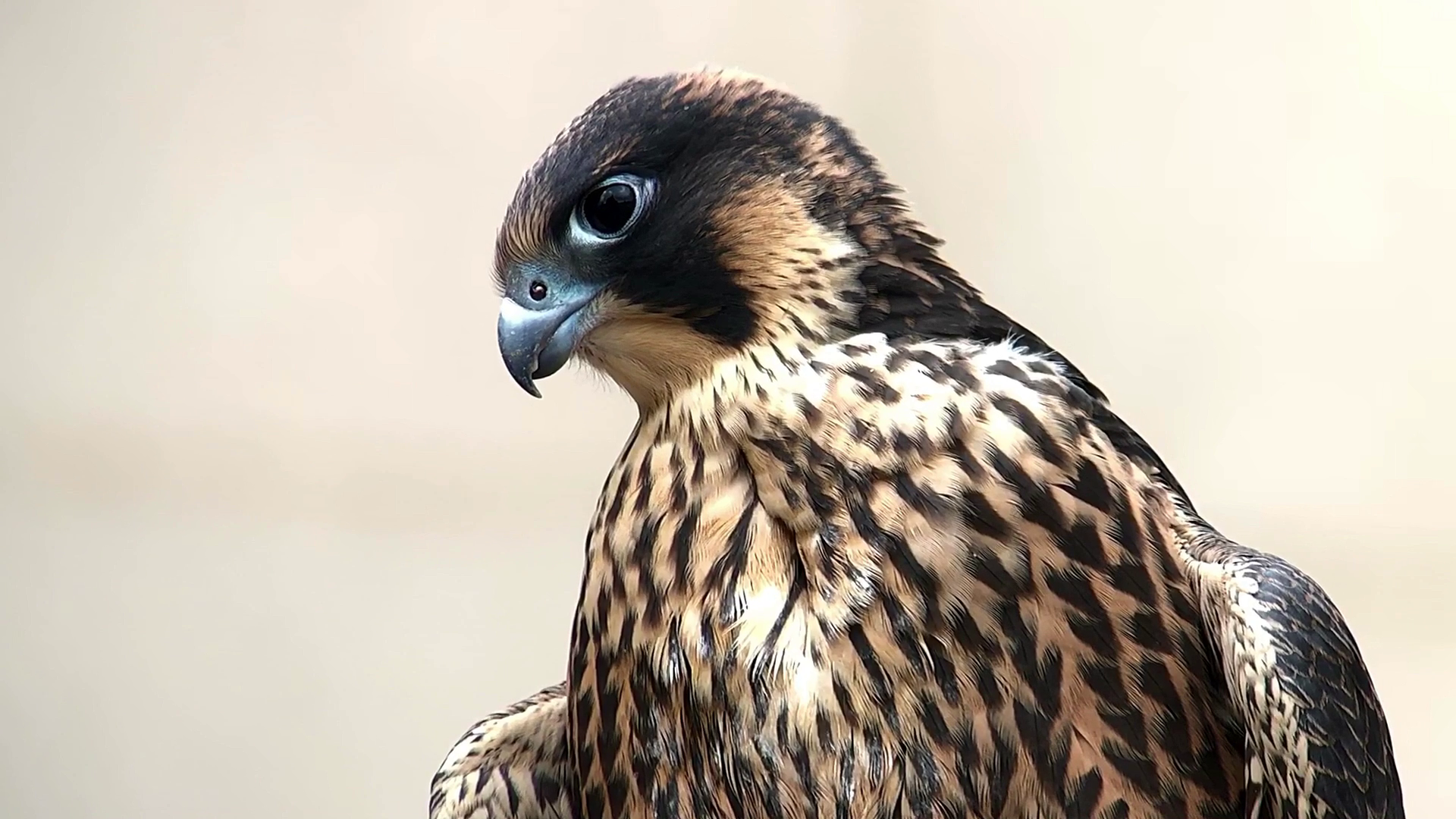Tracing our juvenile Peregrine Falcons

Local birder, Paul Wheatley, tells the story of the Leeds Peregrines.
The wild Peregrine Falcons, that nest on the top of the University's Parkinson Tower, are currently incubating eggs (21/03/23). We're hoping they'll hatch, grow up, fledge the nest and go on to establish their own territories - and we'll be carefully following their progress.
What happened to the young birds previously born on the Tower?
Since Peregrine Falcons were first seen at the University of Leeds in 2018, they've had breeding success in three of the years with a total of ten juvenile birds fledging from the Parkinson Tower.
When the young birds are still small, a team from the University, with help from the Yorkshire Wildlife Trust, rings them. As well as a standard coded metal ring that can be read if the bird is in the hand, a larger plastic "darvic" ring is also attached to each bird. With decent optics and a good view, the code on each ring can be read from a distance, enabling them to be identified.
The hope is always that one of our juvenile birds from Leeds will survive and go on to establish its own territory. They will need to learn to hunt for themselves and find enough food to get them through their first winter. But of course we know that these young birds face many other threats and the survival rate is low. Only a third of juveniles typically make it through their first year.
What happened to our ten fledged birds?
We know of the fate of four of these Peregrines. Whilst this isn't all good news, please hang in there for the happy ending...
- Our first recovery was of our first female to fledge from Leeds - T7B. She was born in 2018. A bird close to my heart - I had to rescue her twice when she became grounded after taking her first flight from the nesting ledge. This was my first experience of picking up a Peregrine Falcon that was in trouble! Sadly the following year someone found her body in a warehouse and reported her ring code to the British Trust for Ornithology. She had made it all the way down to Suffolk but somehow found a way into a disused warehouse and was unable to escape. She starved to death - such a horrible end for a beautiful bird.
- T7B had two brothers. One of them - ringed as TAC - was sighted in various locations around the Leeds area, including Morley Town Hall. He also reappeared at the University on more than one occasion. Clearly he was doing well. We had high hopes that he would find a territory and pair up with a female. Unfortunately there are many different threats to Peregrines in the wild. In the uplands many birds of prey are illegally killed by gamekeepers - and there is a campaign underway to ban the unsustainable practice of driven grouse shooting. In urban areas Peregrines are still not safe from the hands of man. Rogue Falconers have sometimes stolen Peregrines for themselves, and pigeon fanciers have been known to kill them. TAC was found dead on the street in Brighouse city centre. He'd been shot with a shotgun. A police investigation failed to find the perpetrator.
- At the end of last year a juvenile born in 2022, and ringed as TJS, was found dead in Boroughbridge. We presume that he died from natural causes but bird flu might have been to blame. A number of Peregrines around the country (including at least one in the Leeds area) have succumbed to bird flu - a real risk for predators which may hunt prey that has been weakened by the virus.
Surviving chicks
Fortunately we now have some more positive news! In 2019 our Leeds Peregrines raised 4 chicks. Three were female, but there was also a Tiercel, or male, who was ringed as TBD.
After fledging in June, he reappeared at the University in November 2019 but then wasn't seen again for several years. I was recently thrilled to discover that a fellow Peregrine watcher called Freddie, positively identified our Tiercel in the Bradford area after many attempts at getting a look at his leg ring. The bird seen was TBD! It would be fantastic to see TBD go on to raise his own family, and we'll be keeping a careful eye out for him this Spring.
What to do if you spot a Peregrine
If you see a Peregrine Falcon on a building in the West Yorkshire area, please let us know by contacting @LeedsBirder.
If you discover a dead Peregrine Falcon (or other bird of prey) it's most important that you're careful not to touch the bird without PPE. Birds of prey are regularly poisoned by gamekeepers in the countryside north of Leeds and the poisons used can be extremely dangerous to humans as well as Peregrines. If you're at all suspicious about the fate of a bird of prey, make sure you record the situation with photographs, capture the exact location and immediately report the crime. There's more information available from RSPB Investigations.
Keep up to date on the latest news
-
-
- Follow us on Twitter: @UoL_Sus
- Follow us on Instagram: @uol_sus
- Follow us on Facebook: @UoLSustainability
- Sign up to our Sustainability newsletter
-
United Nations Sustainable Development Goals
 We use the United Nations Sustainable Development Goals (SDGs) as a framework to guide our activity. Our work on Student Citizenship links to all of the SDGs.
We use the United Nations Sustainable Development Goals (SDGs) as a framework to guide our activity. Our work on Student Citizenship links to all of the SDGs.
Find out more about our impact on the SDGs.
